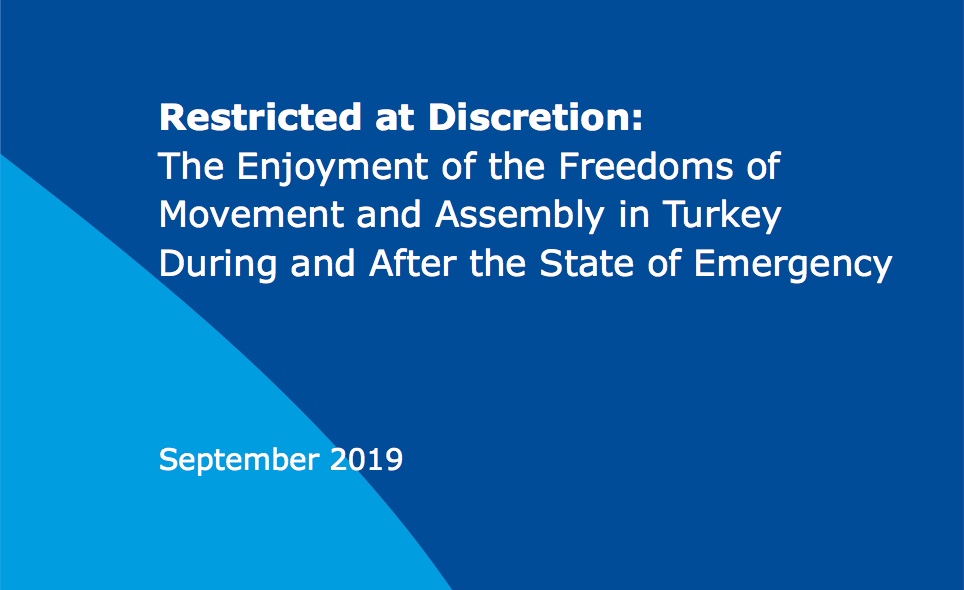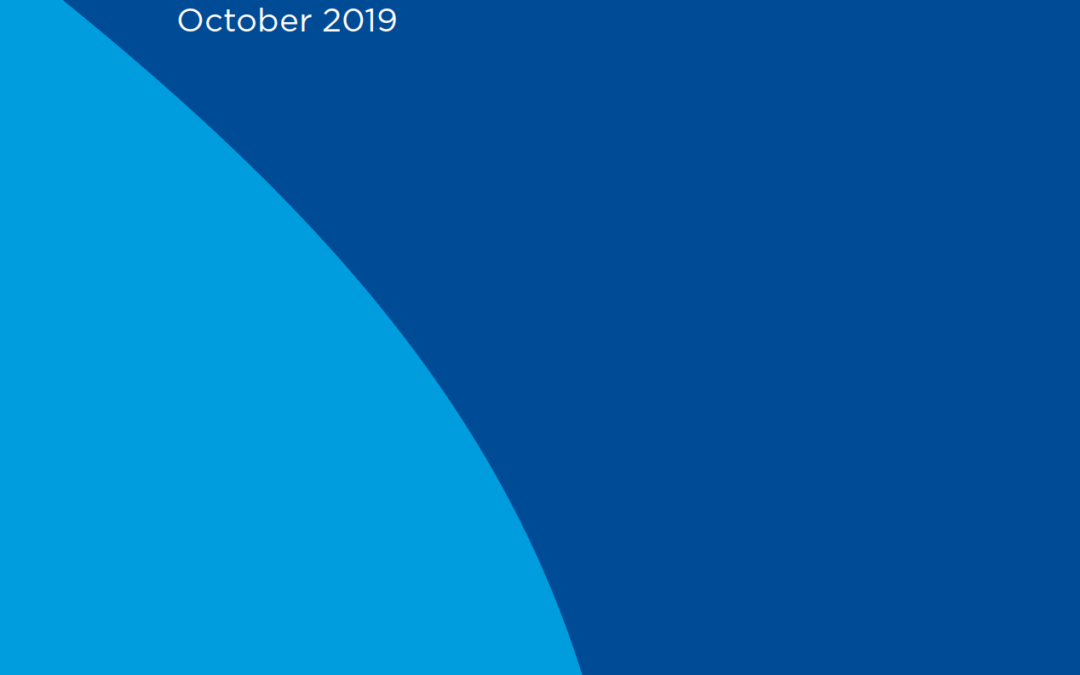
Nov 22, 2019 | Advocacy, Cases, Legal submissions
Today, the ICJ intervened before the European Court of Human Rights in the case challenging the blocking of the website Wikipedia by the Turkish Government throughout the country.
In its intervention the ICJ addressed issues related to the compliance of Turkey’s Internet law and its application in practice, with rights under Article 10 ECHR to freedom of expression and to receive information.
In particular it addresses:
- international standards relating to freedom of expression on the Internet;
- evaluation of the Turkish Internet Law by international authorities, including bodies of the Council of Europe and United Nations;
- blocking of websites and other internet under Article 8/A of Law no. 5651 on Regulation of Publications on the Internet and Suppression of Crimes Committed by Means of Such Publications, and the judicial safeguards applying to such measures; and
- whether remedies including the individual application to the Constitutional Court can redress the deficiencies of the law.
Europe-Wikimedia v Turkey_TPI-Advocacy-Legal submissions-2020-ENG (download the intervention)

Nov 1, 2019
Today, the ICJ and the Human Rights Joint Platform (IHOP) published the briefing paper on the enjoyment of the freedoms of movement and assembly in Turkey.
This briefing paper, entitled Restricted at discretion: The enjoyment of the freedoms of movement and assembly in Turkey during and after the State of Emergency, reports on the law and practice of Turkish authorities relating to governors’ powers to restrict freedom of movement and assembly in the country.
During the state of emergency many restrictions on meetings and demonstrations were based on broad and vague decisions with insufficient reasoning to meet standards of legality, necessity and proportionality, including the banning of LGBTI events.
The ICJ and IHOP concluded that the current Law on Provincial Administration does not provide a sufficient basis of restrictions of these rights as the governors’ powers are not sufficiently well described in law to be foreseeable or to prevent arbitrary, disproportionate or discriminatory application.
Download
Turkey-FoMA brief-Advocacy-Analysis brief-2019-ENG (PDF, English)
Turkey-FoEA-Advocacy-analysis brief-2019-TUR (PDF, Turkish)

Oct 31, 2019 | Editorial, Noticias
Una opinión editorial de Alejandro Salinas Rivera, Comisionado chileno de la CIJ
La desigualdad social, la desconfianza en las instituciones públicas y la falta de goce efectivo de los derechos económicos y sociales, son las raíces de las recientes protestas en Chile.
Los orígenes de las protestas reflejan tres problemas estructurales del modelo político y social del Estado chileno: la desigualdad social a pesar del éxito económico del país, la desconfianza en las instituciones públicas, y la insuficiente capacidad del Estado para garantizar los derechos económicos y sociales.
Además, el país enfrenta frustraciones que quedaron desde la época de la dictadura, y problemas que se han evidenciado durante la época democrática.
En efecto, los derechos no están garantizados de manera uniforme para toda la población chilena. Por ejemplo, algunas personas acceden a servicios de salud que son similares a aquéllos proporcionados en países desarrollados, mientras que otras acceden a servicios de muy baja calidad.
También, la educación se garantiza de manera desigual: la educación pública es costosa y las tasas universitarias son muy altas para la mayoría de la población.
Además, las municipalidades están clasificados entre ricas y pobres, y la infraestructura y la calidad de las carreteras cambian según el barrio. ¿Es todo esto justo? No. Entonces, ¿por qué hay tantas desigualdades entre la población chilena?
Este contexto ha generado que la ciudadanía no confíe en que las instituciones públicas garantizarán sus derechos, y la desesperanza ha impregnado a muchas personas.
Protestas sociales actuales: ¿qué se puede hacer?
Desde hace unas semanas Chile vive un estallido de protesta social. El hecho desencadenante fue el anuncio del 6 de octubre por parte del gobierno chileno de aumentar los precios del metro de Santiago; pero, las protestas están relacionadas con la desigualdad social y la desconfianza en las instituciones públicas.
Después de ese anuncio gubernamental, algunas personas, principalmente estudiantes, evadieron continuamente el pago de las tarifas del metro, y las fuerzas policiales (Carabineros) fueron enviadas para detener dicha evasión.
Así, las acciones de evasión escalaron, y en la noche del 18 de octubre, surgieron masivamente protestas sociales en diferentes ciudades del país que, aún hoy, no han cesado.
La respuesta inicial del presidente Sebastián Piñera fue decretar un estado de emergencia, un toque de queda y desplegar a las fuerzas militares a algunas calles.
Frente a esto, los manifestantes aumentaron y las protestas continuaron y se expandieron a distintas regiones del país.
Se han presentado serias denuncias sobre el uso excesivo de la fuerza por parte de las fuerzas policiales, así como, posibles detenciones arbitrarias ocurridas durante las manifestaciones. Esto requiere que el Estado chileno, en cumplimiento de estándares internacionales, realice una investigación adecuada y efectiva y si la evidencia lo amerita, enjuicie a los responsables.
Por otro lado, si bien la mayoría de protestas han sido pacíficas, algunos manifestantes han cometido actos violentos. Esto no deslegitima la protesta social, pero es necesario que se rechace esta violencia.
Ahora bien, después de más de 13 días de protestas sociales, el gobierno no ha podido generar las condiciones requeridas para concretar un pacto político y social que incluya otras fuerzas políticas, y le permita solucionar de manera adecuada la crisis. Las fuerzas de oposición política, además, tampoco han sido suficientemente generosas en este caso.
Asimismo, la sociedad civil debe brindar alternativas para abordar esta crisis.
En suma, debe haber una solución política que enfrente las raíces de las protestas. Los políticos deben reconocer el descontento social y enfrentarlo a pesar de sus diferencias. Deben converger en un acuerdo social y político que responda, con urgencia, a las demandas sociales en materia de equidad, justicia y solidaridad, así como, a la necesidad de aumentar la confianza en las instituciones públicas.
Por último, los políticos y las instituciones públicas deben garantizar los derechos económicos y sociales de la población, para lo cual, es necesario adoptar las reformas legales requeridas y promulgar políticas públicas que permitan superar la desigualdad social.

Oct 21, 2019 | News
A new briefing paper by the ICJ calls upon Myanmar authorities to ensure that the right to freedom of thought, conscience, religion or belief and respect for culture and tradition are never used as pretexts to justify discrimination and violence in the country.
“The analysis in the ICJ’s paper makes clear why there is a pressing need for Myanmar authorities to undertake significant legal and practical reforms, to ensure that all people can exercise their freedom of religion and belief and enjoy equal protection of their human rights,” said Frederick Rawski, Asia Pacific Region Director for the ICJ.
The paper focuses its analysis on two particular sets of laws – the colonial era ‘blasphemy’ laws, which in recent years have also been used as one of the several measures to restrict free speech and the controversial ‘race and religions laws’ passed in the run up to the national elections in 2015, particularly those related to religious conversion and marriage of Buddhist women.
“The briefing paper highlights a number of laws in Myanmar that impair the enjoyment of the right to freedom of religion or belief’’, said Canadian Member of Parliament David Anderson, Chair of the International Panel of Parliamentarians for Freedom of Religion or Belief Steering Committee, which supported production of the paper.
In recent years, Myanmar courts have convicted individuals under ‘blasphemy’ provisions even in the absence of any evidence of deliberate and malicious intent to insult a religion, let alone on the basis of irrefutable evidence of incitement to violence, hostility or discrimination on religious grounds.
In addition to the use of colonial-era blasphemy laws, Myanmar has a more recent set of four laws that appear to specifically target non-Buddhists, and particularly the Muslim community. While all four laws give rise to concerns about the right to freedom of thought, conscience, religion or belief, the laws related to conversion and marriage are the most problematic.
The briefing paper also identifies a number of other challenges related to the protection and promotion of the right to freedom of religion or belief in Myanmar. These include:
- Highly discriminatory legal arrangements for citizenship and the rights of residents in Myanmar;
- Arbitrary restrictions on places of worship, mostly for Christians and Muslims;
- Preferential treatment of Buddhism, for example in the national school curriculum.
In light of these challenges, the briefing paper offers 11 key recommendations to the Government of Myanmar in ensuring that Myanmar’s legal framework is implemented in accordance with international human rights law and fully protects the right to freedom of religion or belief.
This report is part of a series of ICJ publications on the right to freedom of religion or belief.
Contact
Frederick Rawski, Asia Pacific Director for the ICJ, frederick.rawski(a)icj.org
Liv H. Kvanvig, Coordinator, IPPFoRB, lk(a)nhc.no
Palak Rao, Communications and Advocacy Adviser, IPPFoRB, pr(a)nhc.no
Download
New Briefing paper on Challenges to Freedom of Religion or Belief in Myanmar
See also
New primer on Freedom of Religion or Belief in International Human Rights Law
New Briefing paper on Challenges to Freedom of Religion or Belief in Malaysia

Oct 18, 2019 | News
The ICJ and the International Bar Association’s Human Rights Institute (IBAHRI) have jointly sent an international observer to attend the third hearing of the criminal trial on the “Gezi Park” protest at the Silivri Prison Courthouse in Istanbul, scheduled to take place on 18 October 2019.
The ICJ and IBAHRI observer will be monitoring a trial hearing before İstanbul 30th Assize Court with prinicipal defendant Osman Kavala, and 15 others; Ali Hakan Altınay, Ayşe Mücella Yapıcı, Ayşe Pınar Alabora, Can Dündar, Çiğdem Mater Utku, Gökçe Yılmaz, Handan Meltem Arıkan, Hanzade Hikmet Germiyanoğlu, İnanç Ekmekci, Memet Ali Alabora, Mine Özerden, Şerafettin Can Atalay, Tayfun Kahraman, Yiğit Aksakoğlu and Yiğit Ali Ekmekçi.
The observer will report directly to the IBAHRI and ICJ Secretariats on the proceedings following the mission.
The Gezi Park protests began in May 2013 as an effort by a group of environmentalists to save a park in central Istanbul from being rezoned, but soon turned into nationwide demonstrations.
The protest was quelled by police with the use of tear gas and water cannons against the protesters in Taksim Square. Following a six-year investigation into the events, the 657-page indictment issued by the Istanbul Chief Public Prosecutor’s Office was accepted by the 30th A Court in Istanbul on 4 March 2019.
The defendants are to be charged under Turkish Criminal Code Article 312 (attempt to overthrow the Turkish Government or attempt to prevent it from fulfilling its duties), Article 151 (damage to property), Article 152 (qualified damage to property), Article 174 (possession or exchange of hazardous substances without permission), Article 153 (damaging places of worship and cemeteries), Article 149 (qualified robbery), Article 86 (intentional injury); crimes under the Law on Firearms, Knives and Other Tools no. 6136, and crimes under the Law on Protection of Cultural and Natural Assets no. 2863.
Contact:
Massimo Frigo, Senior Legal Adviser, t: +41 22 979 38 05 – e: massimo.frigo(a)icj.org









